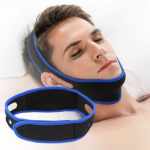Image via Pixabay
Sleep. It’s a simple action that isn’t easy for everyone. If you’re one of the millions of Americans that suffers from sleep disturbances, keep reading for advice on how to get your best rest and how sleep affects the five most prominent self-care domains.
Sleep deprivation damages health
Dr. Eric J. Olson of the Mayo Clinic asserts that seven to nine hours of sleep is ideal for most healthy adults. Any less than that can affect your performance the following day, even if you feel rested. A sleep deficit can have a negative impact on your emotions and can trigger irritability and loss of control. This is because the amygdala, the part of your brain related to emotional processing, is affected. Sleeplessness can further cause or amplify other physical and mental health conditions. It’s believed that a regular inability to sleep can even trigger obesity.
Sleep is also vital to cognitive functioning– so much so that even missing out on one or two restful nights can alter your performance at work. WorkItDaily.com explains how chronic sleep deprivation may be associated with poor decision-making and unethical behavior. Perhaps even more concerning is that inadequate sleep can take a toll on your spirituality. Being cranky, cognitively-impaired, and overly-fatigued can change the way you treat others, which can leave you less connected to your higher power.
Knowing all of this, you can see how poor sleep interferes with you physically, spiritually, professionally, emotionally, and socially. These areas of your life are the pillars, or domains, of self-care that must be tended in order to be a whole and healthy you.
A sound sleep
Just understanding how sleep affects you doesn’t help you settle in for the evening. A good night’s sleep takes work, and sleeping well in the long term requires dedication and changes starting now.
One of the most profound contributors to insomnia is likely in the palm of your hand right now. Smartphone, television, and computer screens emit blue light. This is the same kind of light given off by the sun. It can penetrate your grey matter, convincing your brain that it’s time to be up and on the move. Limit your exposure to electronics during the hour before bedtime. Most devices, including digital reading tablets, have filtering technology that can allow you to enjoy nighttime reading without exposure to wakeful illumination.
Another critical component of your nighttime routine is staying consistent in how you wind down. Establish a pattern of action that will signal your body and brain that it’s time for bed. This might include a light snack and a warm shower followed by 30 minutes of meditation. Your bedtime strategy is something you must develop on your own, since what helps someone else relax may not work for you.
Along the same vein as developing a sleep routine is creating a sleep schedule. As our bodies get used to a pattern, our circadian rhythm begins to regulate. Go to bed within 15 minutes of the same time each night, making sure to give yourself at least eight hours before you have to rise.
Other ways to induce healthy sleep include:
- Avoiding heavy foods in the evening
- Getting plenty of physical activity
- Using a sound machine to block out external distractions
- Sleeping alone
- Reading before bed
- Using breathable covers and a mattress that promotes air circulation
Sleep is really one of the most important things you can do for yourself. Not getting enough can wreak havoc on every part of your day– and night. So, pay attention to your routine and develop a strategy that helps you fall and stay asleep.








